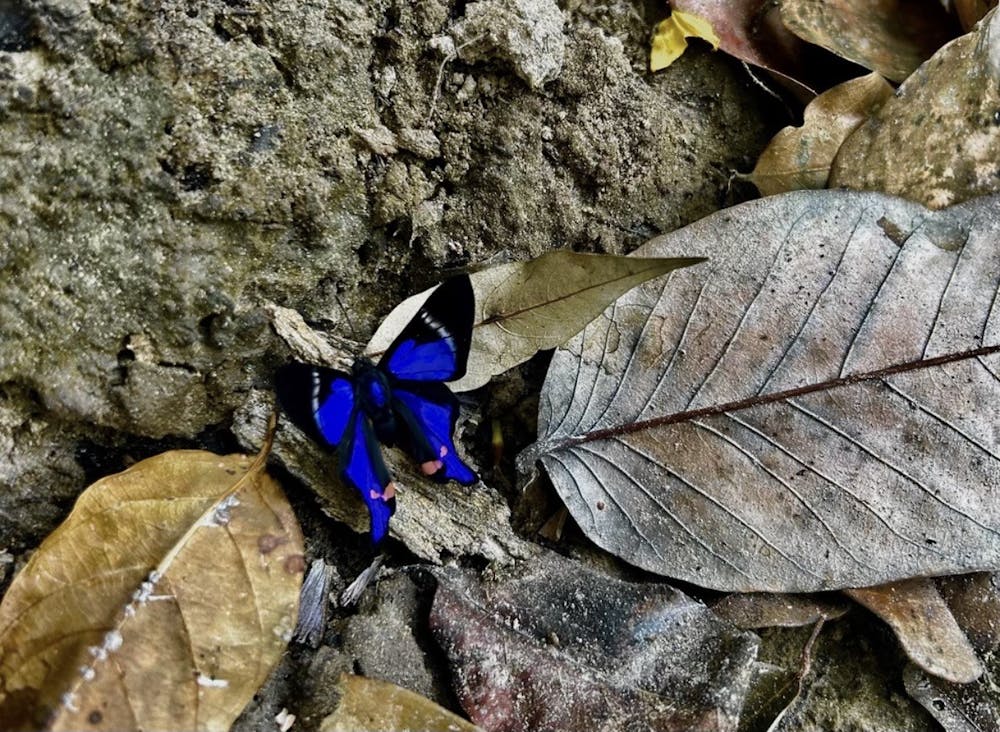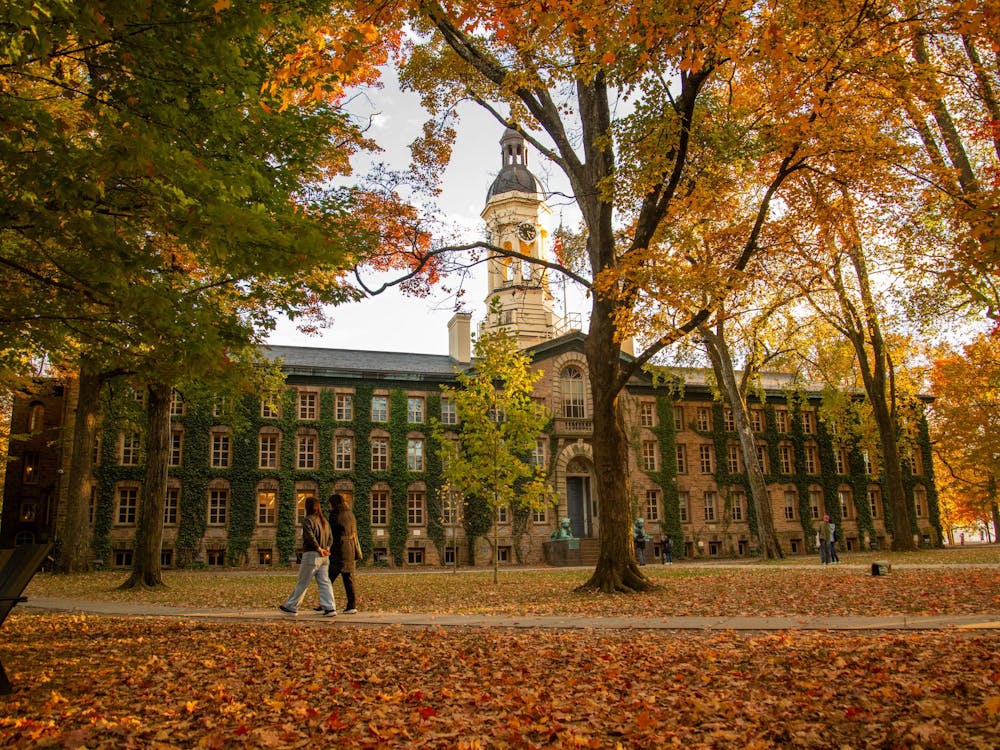Dispatches at The Prospect are brief reflections from our writers that focus on their experiences during the summer.
As a city kid, many people find it hard to believe that I love nature. I guess it’s a part of my Tanzanian heritage, but I always enjoy my time when I’m outside in nature. So when I had the opportunity to study birds in the Amazon this summer, I knew it was an experience that I could not pass up.
Over the last two weeks (and for the next five), another intern (David Dorini ’25) and I have been assisting Ph.D. candidate Alex Wiebe in collecting bird and flora survey data. As a part of Professor David Wilcove’s lab, Wiebe is analyzing how forest fragmentation affects bird species’ diversity within the Amazon. We are currently living on the Tanguro farm in the state of Mato Grosso, which contains the southern part of the Amazon rainforest, an area that is heavily deforested due to the demand for farmland. Every weekend, when all the farm workers return to their houses, we drive into Querência or Canarana, two nearby towns that have hotels where we sleep.
A typical day for us starts around 4 a.m. Since we are surveying birds within different fragments of the rainforest, we have to wake up before they do. After a quick drive to a forest fragment, we get ready with our gear (thick rubber boots, a flashlight, and a GPS), split up into two groups (a vegetation survey group and a bird survey group), and enter the forest. The bird survey group always enters forest fragments first, traversing through the dark, untouched rainforest to get to the first point marker on the GPS. Bird surveys are always done with Alex, who does all of the bird surveying while David or I stand by and take notes. Bird surveying is extremely difficult earlier in the day: not only are there an array of different birds of different species that begin to sing (or call) all at once, but visual identification is almost impossible, since you start surveying when there is no sunlight and many birds are perched on the tallest trees in the forest. But Alex has the admirable, uncanny ability to identify birds from the slightest of sounds.
Alex is easily the most passionate bird watcher I’ve ever seen. He knows the songs and calls for every species of bird in eastern Brazil, can identify birds from miles away with his Swarovski 12x binoculars, and carries the most awesome camera ever. Watching him yell out the names of birds in succession while I frantically attempt to take notes has definitely been one of the highlights of my summer so far. His commitment to preserving species diversity within the Amazon is inspiring.
On days when David or I do vegetation surveys, Alex lets us conduct them without his supervision. With the help of a Brazilian scientist named Julio, we count how many seedlings and young trees are on the forest floor at randomly selected points. Julio only speaks Portuguese, so David and I had to learn a few basic words in Portuguese in order to do vegetation surveys with him. Though Julio and I don’t understand each other, we work well as a team.
Since we are doing work in quite possibly the most species-abundant forest in the world, I’ve managed to see some pretty amazing animals. My favorite bird sightings so far have been the hundreds of different macaws, parrots, rheas (a species of bird very similar to that of an ostrich), toucans, and vultures. However, the rarest creatures I’ve seen so far were not birds but spider monkeys and a giant armadillo. If I’m lucky, I might see a jaguar, rattlesnake, or frog sometime soon.
The food in Brazil is delicious. If there are four things you will always see in a Brazilian meal, it’s meat, rice, beans, and cheese. Every day at the station or in town, we eat rice and beans at least once, and whether it’s pork, beef, fish, or chicken, there is always a piece of meat on our plate.

So far, I’ve loved my time in Brazil. Although it’s sometimes hard to keep in contact with other people from home, I haven’t gone a day without eating great food, exploring the wonders of the Amazon, and contributing to meaningful conservation research. I look forward to my next five weeks here.
Brian Mhando is an assistant Sports editor at the ‘Prince.’
Self essays at The Prospect give our writers and guest contributors the opportunity to share their perspectives. This essay reflects the views and lived experiences of the author. If you would like to submit a Self essay, contact us at prospect@dailyprincetonian.com.









